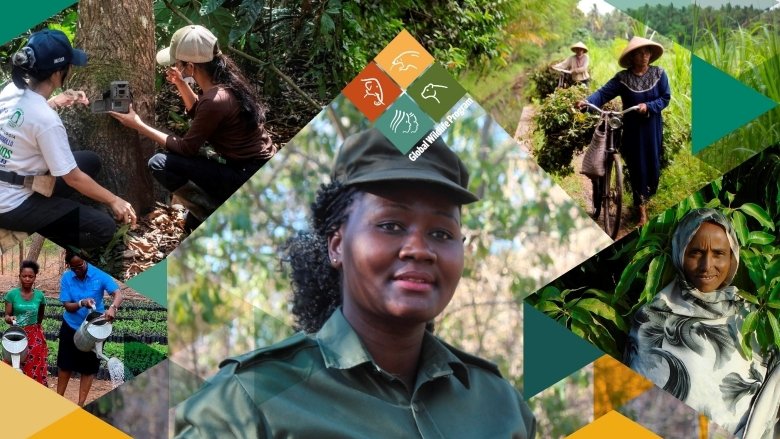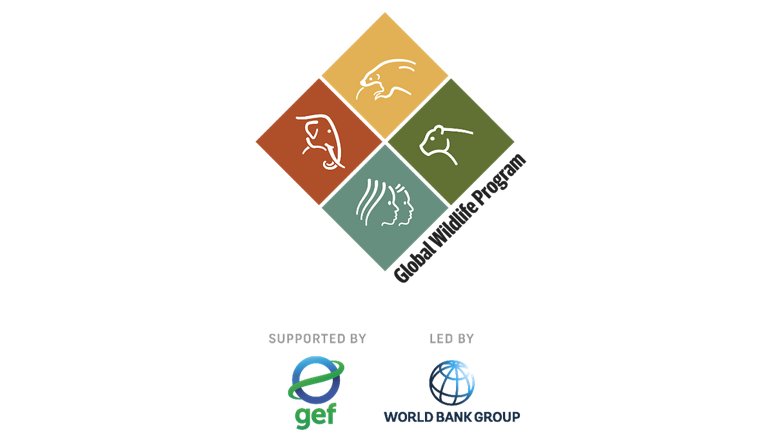The Global Wildlife Program recognizes that efforts toward achieving gender equality are critical to conservation success. Applying a gender lens to Global Wildlife Program (GWP) projects is a win-win: it adds value to counter illegal wildlife trade (IWT) and biodiversity conservation projects while advancing gender equality. Bringing women and other diverse actors into GWP projects as participants, decision makers and agents of change is a GWP priority.

This GWP Knowledge Exchange is the fourth online event on gender in a series that started in April 2022. The primary purpose of the November 2023 webinar was to systematically explore the nature of the evidence that involving women in wildlife conservation projects brings added value to the projects and catalyzes different paths to conservation success.
Representatives from two GWP projects joined GWP Gender Advisor Dr. Joni Seager in conversation about the kinds of evidence and outcomes that they saw in their projects that reflected distinct ways in which women’s inclusion brought new perspectives and outcomes to their conservation work. The project participants were Mbiganyi Frederick Dipotso, Project Manager for the Kgalagadi and Ghanzi Drylands Ecosystem Project in Botswana, and Phansiri Winichagoon, Project Manager, and Peeranun Panyavaranant, Gender Specialist, for the Combatting Illegal Wildlife Trade project in Thailand.
Summary of the session
The Gender Advisor, Joni Seager, set the stage by discussing an emerging emphasis in conservation on “evidence-based” practice. One of the distinct contributions the GWP brings to this overall effort is to identify the evidence that deploying a gender lens and purposefully including women in conservation projects catalyzes change and amplifies conservation success. “Evidence-based” approaches framed the conversation with the two projects.
Some of the evidence-based themes were common across both projects, while others were particular to each:
1. Women are driven and motivated to support conservation efforts
- Both the Thailand and Botswana projects have observed that women generally expressed distinct motivations for protecting biodiversity compared to the drivers motivating men to support conservation. For example, men tend to perceive wildlife as a means to an end (wildlife as meat and/or for sale), while women more often saw the intrinsic value of the species, necessitating their protection. This key difference, the project managers reported, generates a powerful motivation for women to support conservation efforts.
- At the Botswana project site, women are important decision makers in their household – 60% of the households get most of their income from women’s labor. Women predominantly disapproved of and raised their voices against poaching on a large scale. They also saw pathways to benefit from wildlife-based economy sectors such as nature-based tourism. This gave women in the project district a particular interest in protecting environmental resources and creating conservation reserves. As women became increasingly eager to express an interest in conservation, it resulted in an “all-community” boost to the effort.
2. Women have distinct skills that are beneficial to wildlife conservation
- Both projects reported that women held a unique position in society, because they do most of the domestic labor and have primary responsibility for the children. This allows them to act as powerful ‘influencers of change’ within their households and communities.
- The Thailand project leaders observed that women conservation (enforcement) officers were more considerate and cooperative when women reported being affected by incidences of human-wildlife conflict. Additionally, with stronger soft skills and a less confrontational mindset, women seem to have brought a different and more effective approach to law enforcement. They also noted that women tended to be more attentive to detail, and were more astute at data gathering and analysis.
3. Women bring innovative ideas to conservation efforts
- In Botswana, when the government is willing to invest more in crop production, more women seem to be interested in adopting climate smart agriculture techniques, while men remain committed to livestock herding.
- In Thailand, women and other social minorities also brought new views, often thinking outside the box on conservation issues to achieve project outcomes. For example, to increase wildlife awareness, a combined girls and LGBTQ team created a ‘Miss Wildlife’ contest as a way to connect with the public. ‘Miss Wildlife’ was positioned as a “wildlife hero” and, among her duties, initiates conversations about wildlife crime issues by visiting wildlife markets.
The GWP Gender Advisor will continue to work with projects to track evidence that points to the added value of bringing a gender lens and diverse actors into project activities and leadership.
